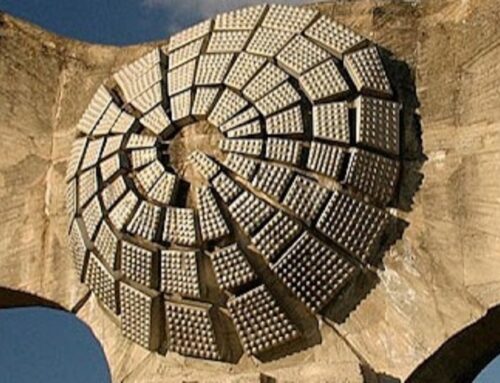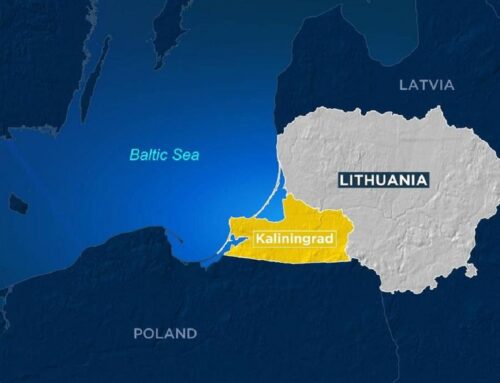Hashim Thaçi was born on April 24th 1968 in the village of Buroje, Skenderaj. He holds a BA in History at the University of Pristina and later on he attended post-graduate studies in Zurich, Switzerland. Currently Thaçi lives in Pristina, along with his wife Lumnije and son Endrit.
1990’s
Thaçi became politically active in the late 1980’s. He was the leader of students’ movement and active in People’s Movement of the Republic of Kosovo until 1993.
Thaçi was one of the founders of the “political-military” organization Kosovo Liberation Army (UCK) and its Political Chief during the conflict from 1997 until 1999. In 1999 he had founded a political party[1] and a year later became elected for president of the Democratic Party of Kosovo (PDK). During the negotiations held in Rambouillet, Thaçi was the head delegate of Kosovar Albanians and for almost a year he acted as a Prime Minister of the Provisional Government of Kosovo.
2000’s
Thaçi also served as a member of the Interim Administrative Council (IAC). IAC was a joint governing structure of the United Nations Mission in Kosovo (UNMIK) and the Kosovo political spectrum that lasted until the first parliamentary elections in Kosovo in 2001.
Few years later, from 2005 to 2007, Thaçi was a member of Unity team at the negotiations led by Martti Ahtisaari in order to negotiate Kosovo’s political status.
In 2008 PDK won the elections and declared independence of Kosovo on 17th February. Thaçi became the first Prime Minister of the Government of the Republic of Kosovo. He served two terms before becoming the First Deputy Prime Minister and Minister of Foreign Affairs. He held those two positions for a year only to become elected as the fourth President of the Republic of Kosovo in 2016.
Recent years
Thaçi is representing Kosovo in the political dialogue with Serbia. This dialogue is still an ongoing process in Brussels, but the most important outcome so far is what is known as the ‘Brussels agreement’ or ‘Agreement on Normalization of Relations between Kosovo and Serbia’. In 2014, Thaçi was nominated for the Nobel Peace Prize (together with Ivica Dacic[2] and Katherine Ashton[3]) by American Congressmen, American Senators and European Parliament Representatives.
In February 2018, a book called ‘New State, Modern Statesman – Hashim Thaçi – A Biography’ was published. It was written by Roger Boyes and Suzy Jagger. He is portrayed as ‘a young ethnic Albanian student leader called Hashim Thaçi, led a revolution against Slobodan Milosevic’ and the book itself is described as ‘the story of the rare success of Western military intervention and the first biography of the new President of Kosovo, the youngest country in Europe.’
Accusations and proceedings
The Serbian court in Pristina convicted Thaçi (and other UCK members, including Adem Jashari) in absentia for 10 years in prison in 1997. Later on he was arrested on several occasions due to an issued warrant by Interpol and on Serbia’s request, but he has never been extradited and the international warrant for Thaçi has been abolished in the end.
However, first indictments against members of Kosovo Liberation Army (UCK) for war crimes and crimes against humanity committed between January 1st 1998 and December 31st 2000 are expected to happen anytime now at the Kosovo Special Chambers. The Chambers is a part of the judicial system of Kosovo, but located in The Hague and judges, prosecutors and staff coming also from international community.
According to the Marty Report[4], president Thaçi should be one of the first political leaders to be indicted. The Report in question claims that Thaçi was the leader of a group known as ‘Drenica Group’ that trafficked organs taken from Serbian prisoners. On page 16, it also claims that (among others) Thaçi ‘had ordered – and in some cases personally oversaw – assassinations, detentions, beatings and interrogations in various parts of Kosovo…between 1998 and 2000.’ It also connects Thaçi to the Albanian mafia, stating that Drenica Group had control over the trade of heroin and other narcotics and that those allegations can be proven by confidential reports made by agencies following trails through at least 5 countries. It quotes NATO intelligence analysts that see Thaçi as the most dangerous UCK’s criminal boss, but it also states that we have not seen convictions yet because of two reasons: lack of political will of the international community in Kosovo and elimination/intimidation of witnesses. Will this be changed by the activity of Kosovo Special Chambers remaining to be seen, but the attempt of the Kosovo Assembly from 2017 to abrogate the law on this court leaves us with the dilemma – is Kosovo society ready to deal with the past?
Sources:
https://www.slobodnaevropa.org/a/27575433.html
http://www.president-ksgov.net/en/president
https://www.state.gov/r/pa/prs/ps/2017/12/276812.htm
https://assembly.coe.int/CommitteeDocs/2010/20101218_ajdoc462010provamended.pdf
http://www.politika.rs/scc/clanak/161520/Sve-optuzbe-protiv-Hasima-Tacija
http://illyriapress.com/eu-kosova-serbia-leaders-nominated-nobel-peace-prize/
[1] The original name of the party was Party of Democratic Progress of Kosovo (PPDK), but it changed its name at the first congress into PDK.
[2] Prime Minister of Republic of Serbia at the time
[3] European Union’s High Representative for Foreign Affairs and Security Policy at the time
[4] A report to the Council of Europe, written by Dick Marty, issued on 15 December 2010




Leave A Comment